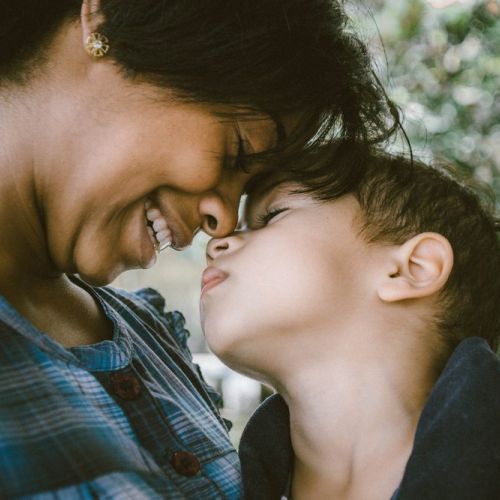Multi-Omics 2024 and Cure Cancer's impact on innovation in cancer research
By The Cure Cancer Team | 23 December 2024
Multi-Omics 2024, held at Brisbane Convention & Exhibition Centre from 1-3 December, highlighted Cure Cancer's pivotal role in supporting emerging researchers who are driving innovation in cancer research.

From left to right: A/Prof Fernando Guimaraes, A/Prof Orazio Vittorio, Cure Cancer CEO Nikki Kinloch, Multi-Omics co-organiser Dr Arutha Kulasinghe, Dr Jessica Da Gama Duarte, Dr Asmerom Sengal, and Dr Mark Adams.
This year, the Multi-Omics meeting brought together leading researchers from Australia and around the world to showcase how multi-omics is reshaping our understanding of disease biology. From cutting-edge technologies like Spatial Biology and Digital Pathology to liquid biopsy profiling and artificial intelligence, these advancements are offering new possibilities for improving patient outcomes.
Many of the researchers presenting at the conference, including co-organiser A/Prof Arutha Kulasinghe, have had their research funded by Cure Cancer. Seeing their innovative ideas on display was a powerful reminder of why we’re so passionate about funding early-career researchers.
“You've got the best of the best from around the world here in Brisbane to hear about how we can move these tools to make breakthroughs in cancer research,” said Arutha.
One of the many highlights of the event was the Immuno-Oncology session chaired by Cure Cancer CEO Nikki Kinloch, which showcased the groundbreaking work of several Cure Cancer-funded researchers:
- Dr Jessica Da Gama Duarte presented her innovative research on using B cells and tertiary lymphoid structures to predict cancer outcomes.
- A/Prof Fernando Guimaraes shared his multi-omics approach to understanding immune mechanisms in pediatric cancers and infectious diseases, paving the way for more precise therapies for young patients.
- A/Prof Orazio Vittorio discussed his pioneering work on copper chelation in enhancing anti-GD2 antibody therapy for neuroblastoma, presenting a novel approach to improving treatment outcomes for this challenging childhood cancer.
- Dr Asmerom Sengal presented on the application of spatial transcriptomics in endometrial cancer research, showcasing how the cutting-edge technology can bridge the gap between biomarker discovery and targeted therapy.
During the Multi-Omics gala dinner, Cure Cancer CEO Nikki Kinloch spoke about the importance of supporting early-career scientists and the impact this has on driving change and innovation in the sector.
“It was a pleasure to be invited to talk at Multi-Omics 2024 Gala Dinner last night,” she reflected. “A room full of incredible minds from all around the world using technology to solve global health issues.”
“It also turned into a Cure Cancer reunion, with so many accomplished Cure Cancer alumni talking about their innovative approaches to cancer research.”

From left to right: Multi-Omics co-organiser and Cure Cancer-funded researcher Dr Arutha Kulasinghe, Lung cancer survivor and advocate Michel Itel, and Cure Cancer CEO Nikki Kinloch.
Lung cancer survivor and research advocate Michel Itel also shared his seven-year journey with stage 4 lung cancer, and the life-changing potential of digital spatial mapping for patients like him.

A visual representation of the Gala Dinner addresses.
The event also featured a special fundraising initiative for Cure Cancer, emphasising the ongoing need to support the next generation of cancer researchers, which raised an incredible $3,096.
Multi-Omics 2024 is a reminder of why we do what we do. Supporting early-career researchers is about more than advancing cancer research – it’s about giving hope to patients, families and communities. Our funded researchers are paving the way for a brighter future in which cancer is no longer a threat, and it’s thanks to your support that this progress is possible.










